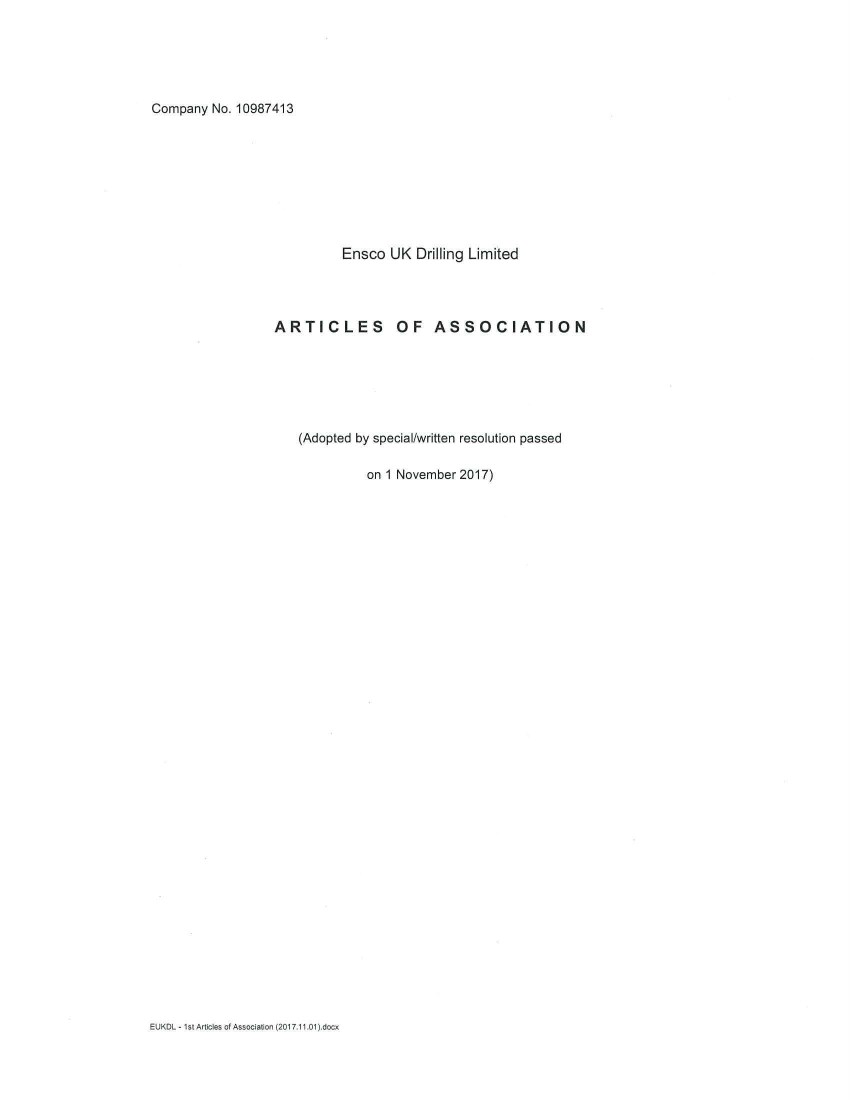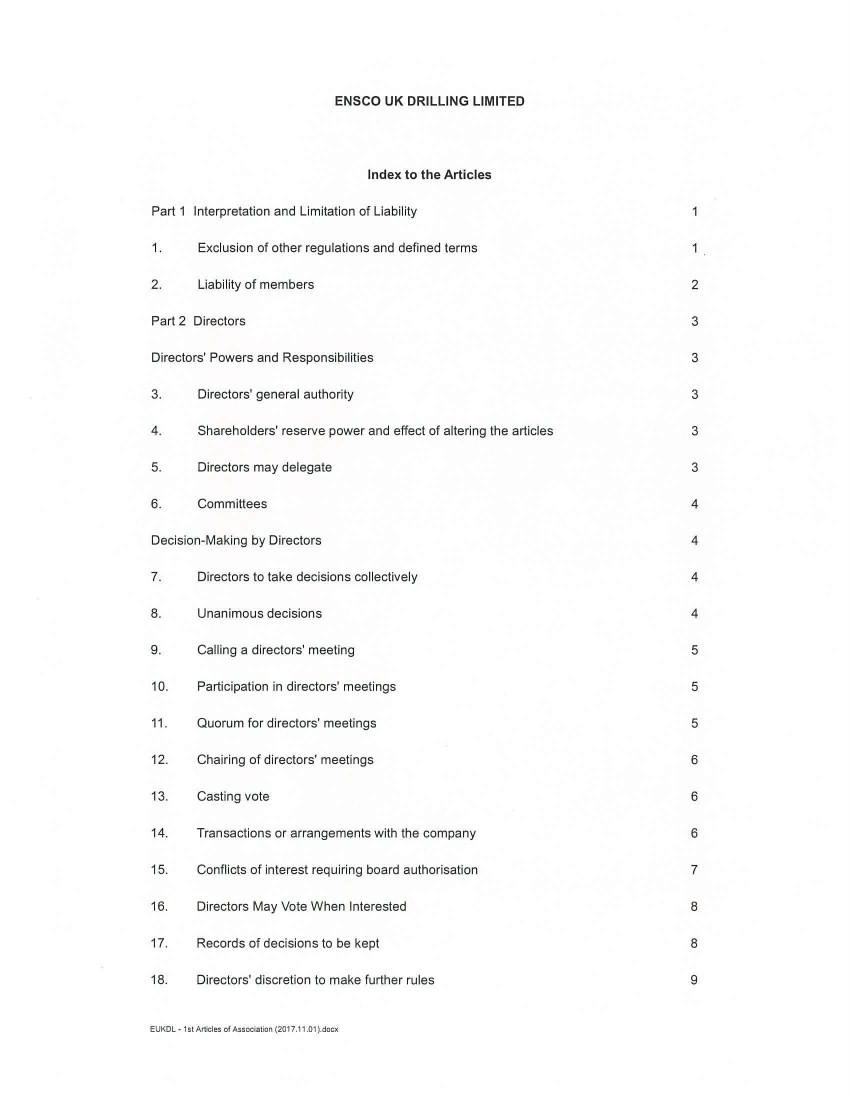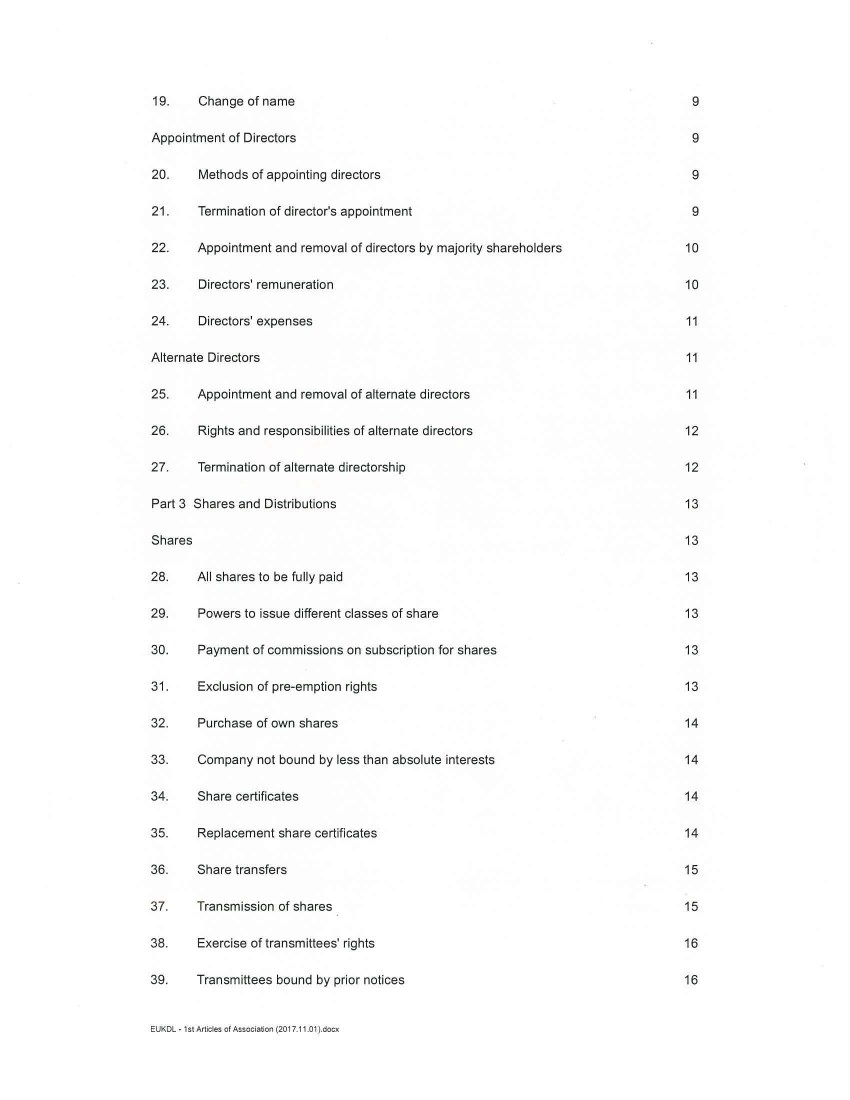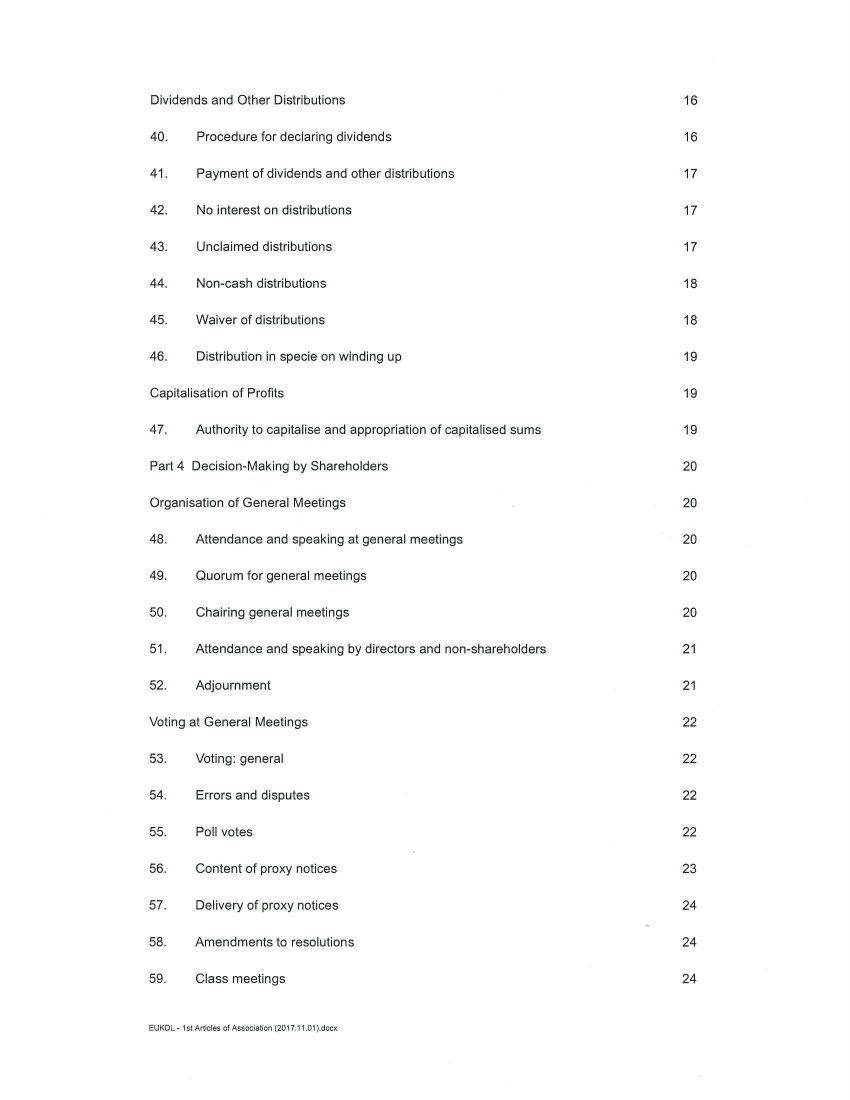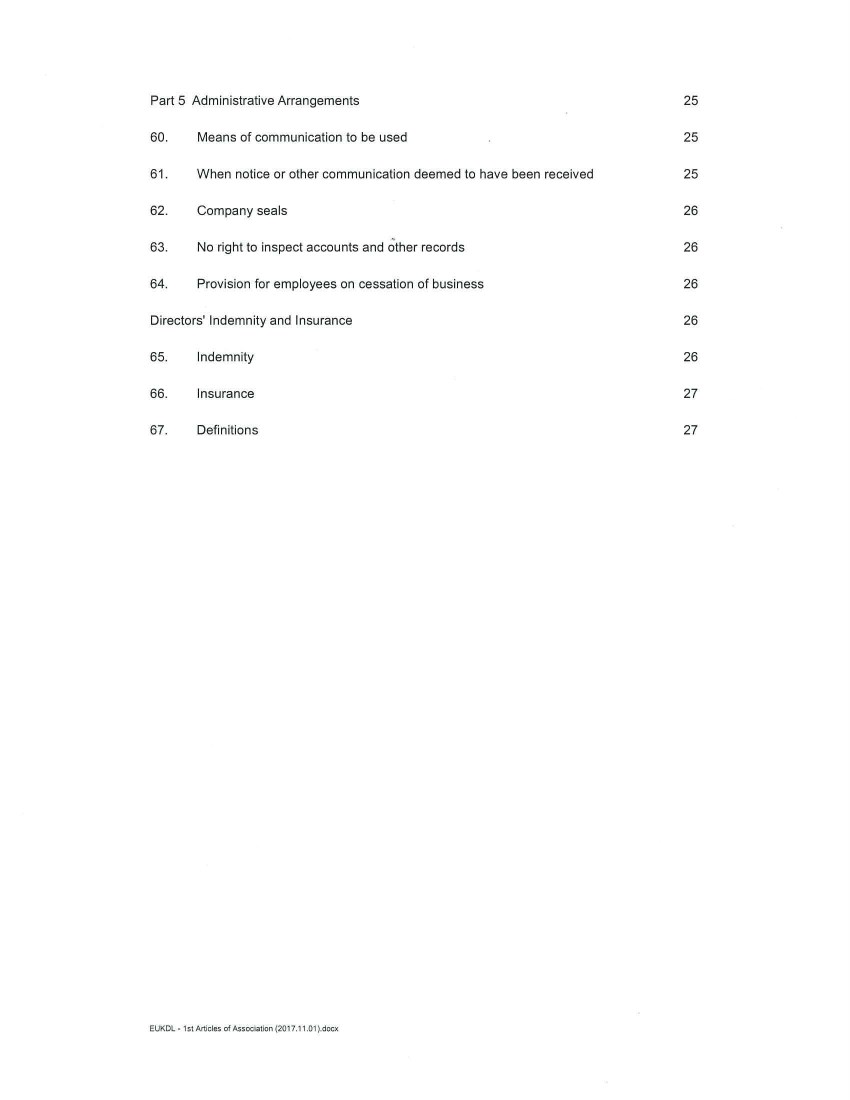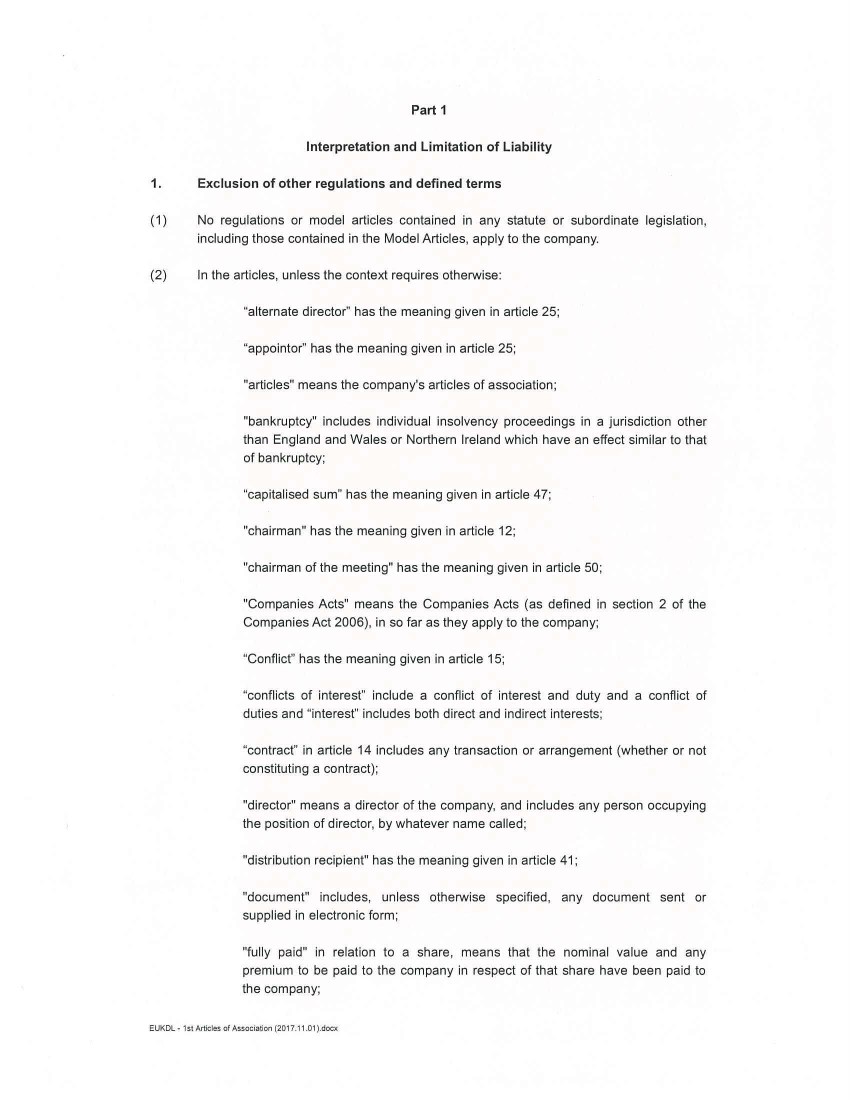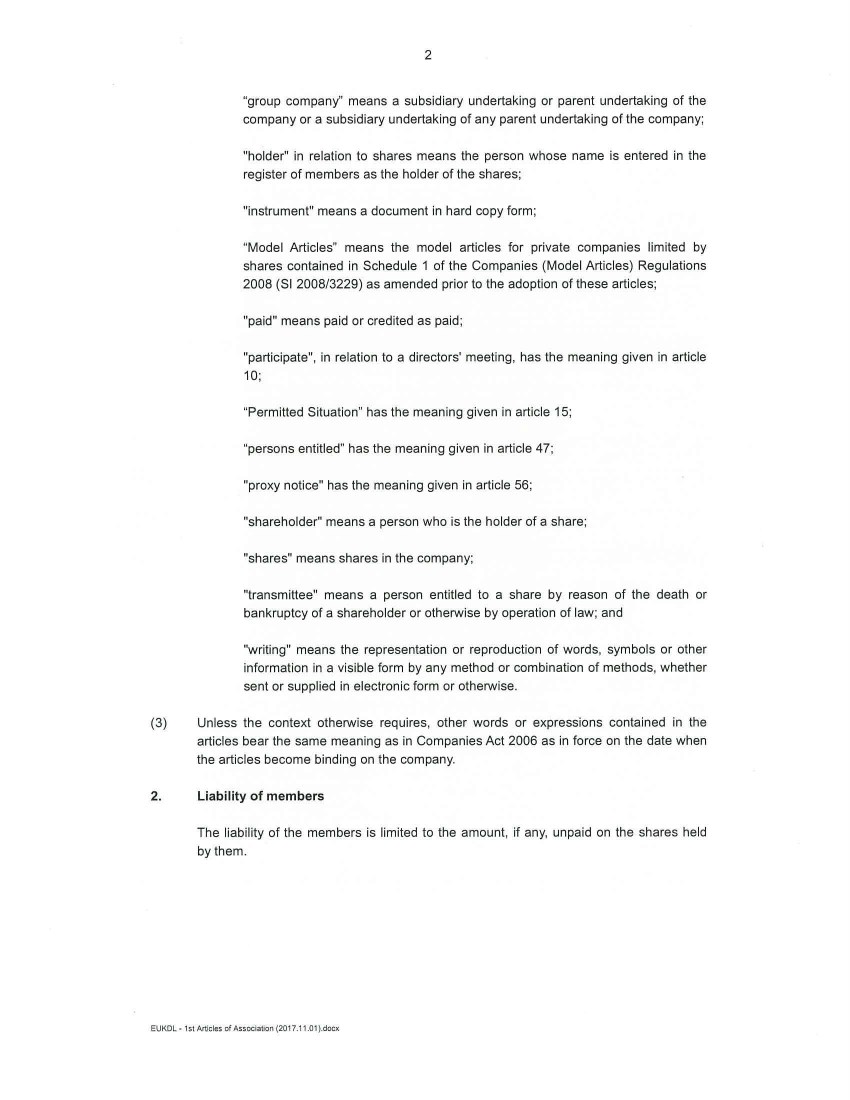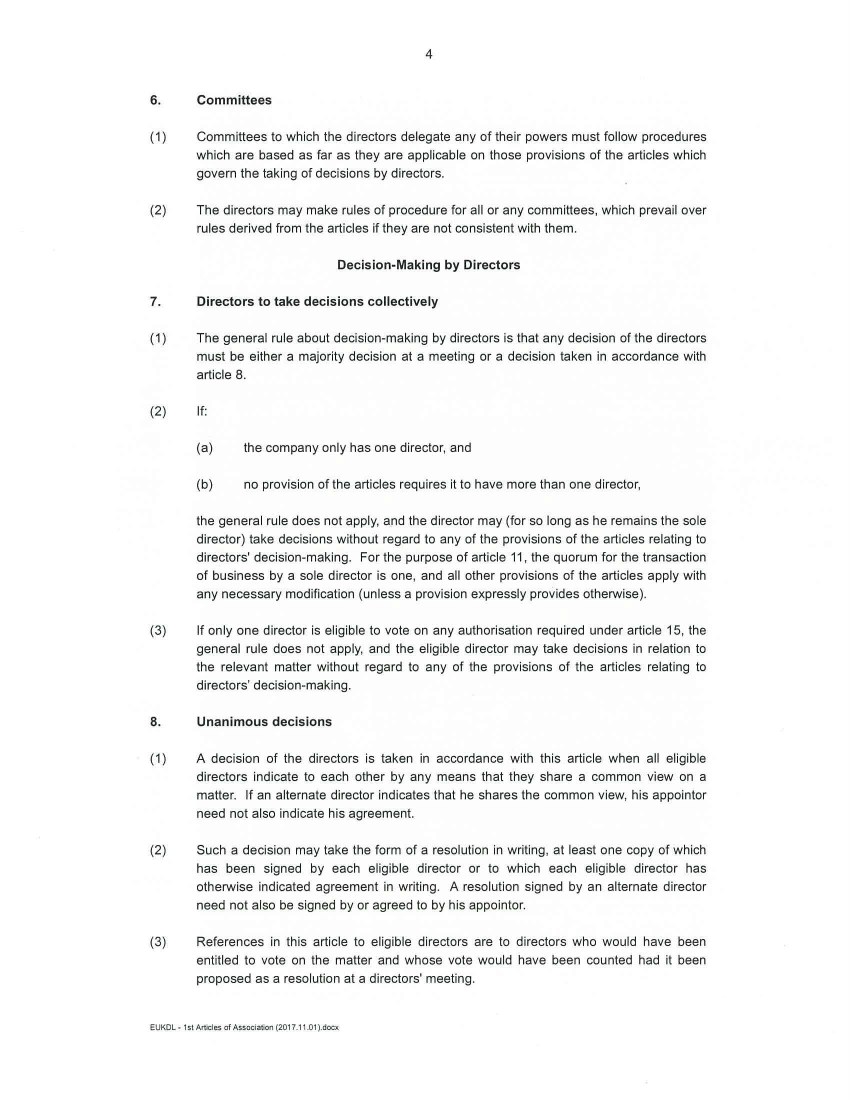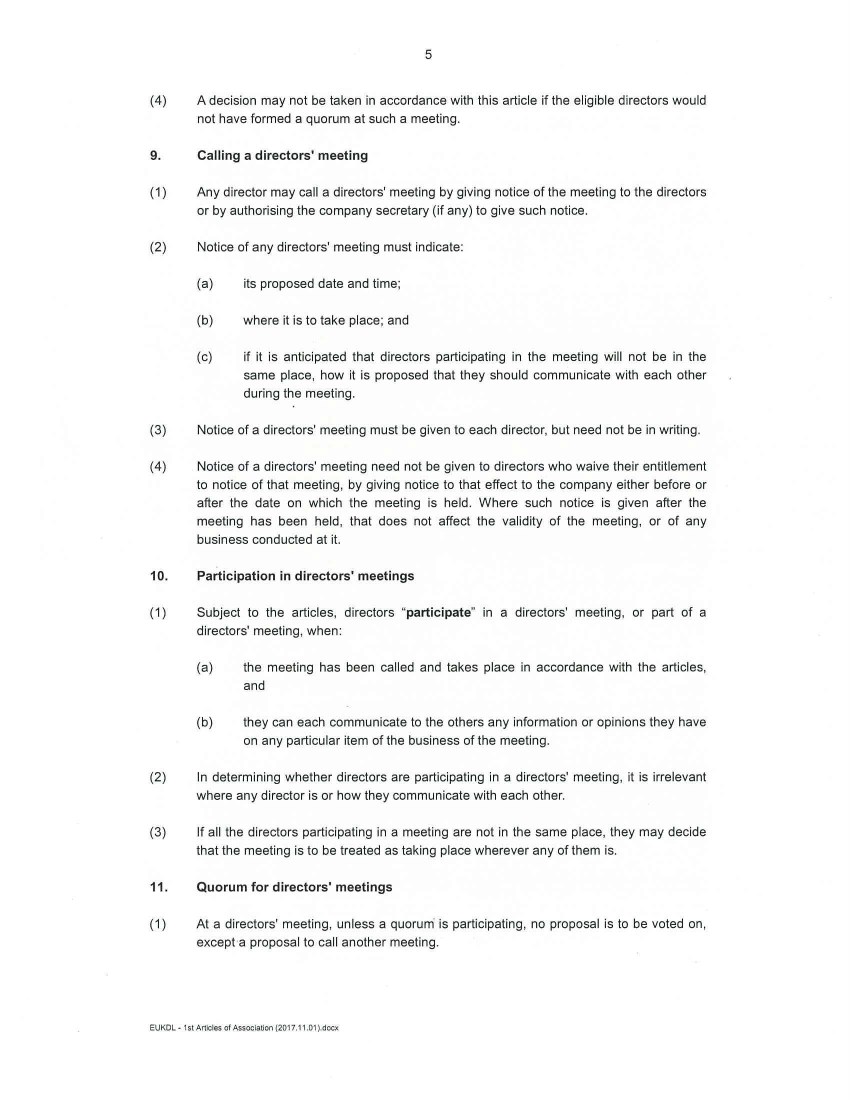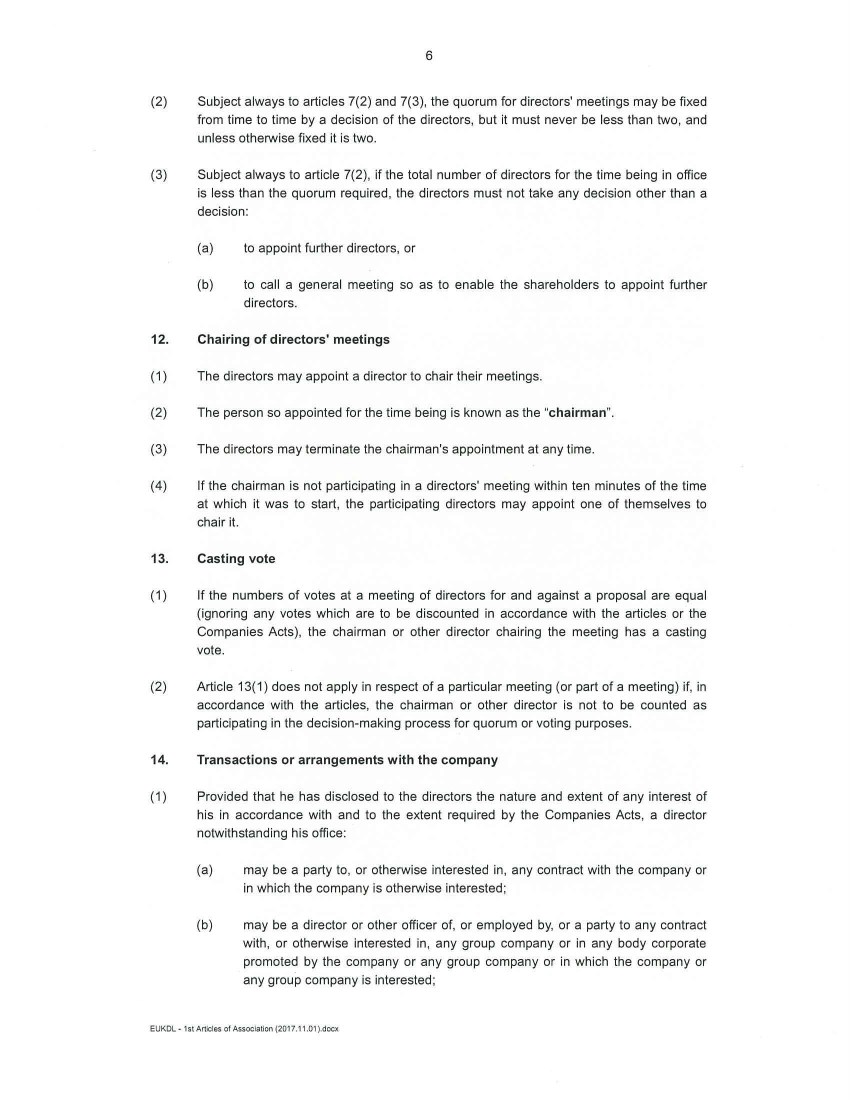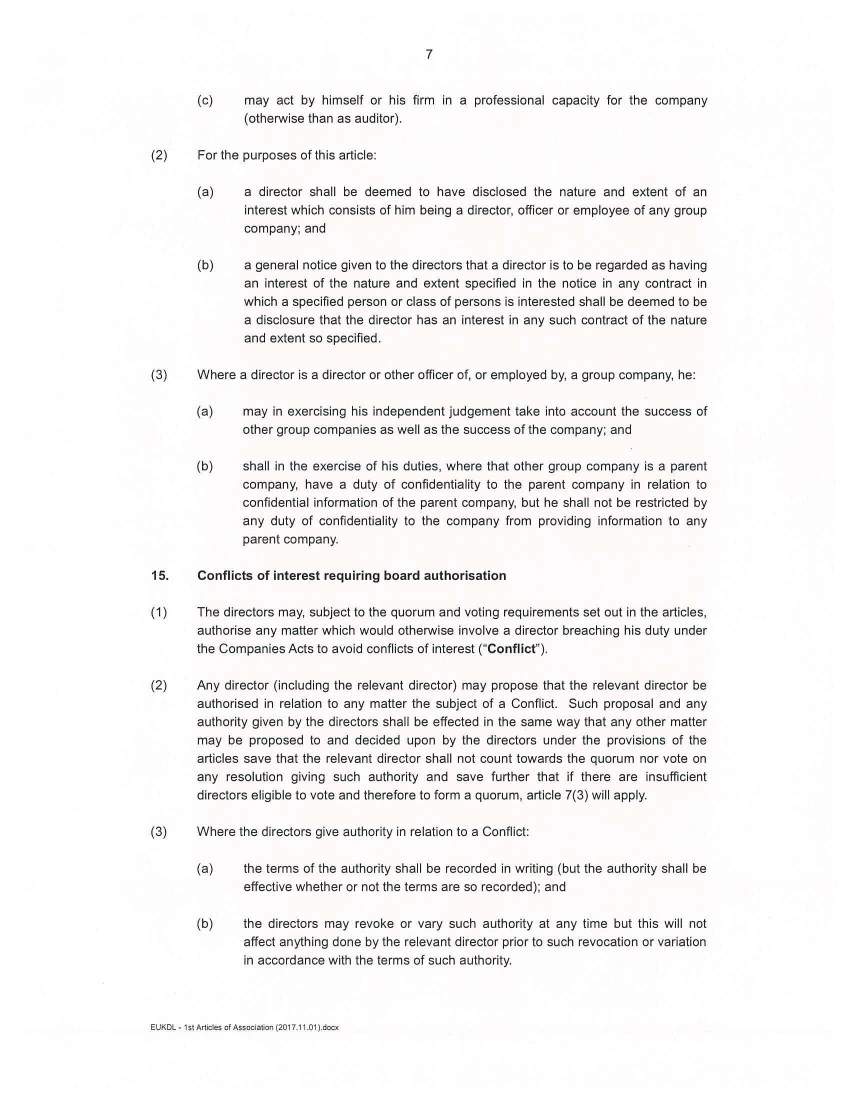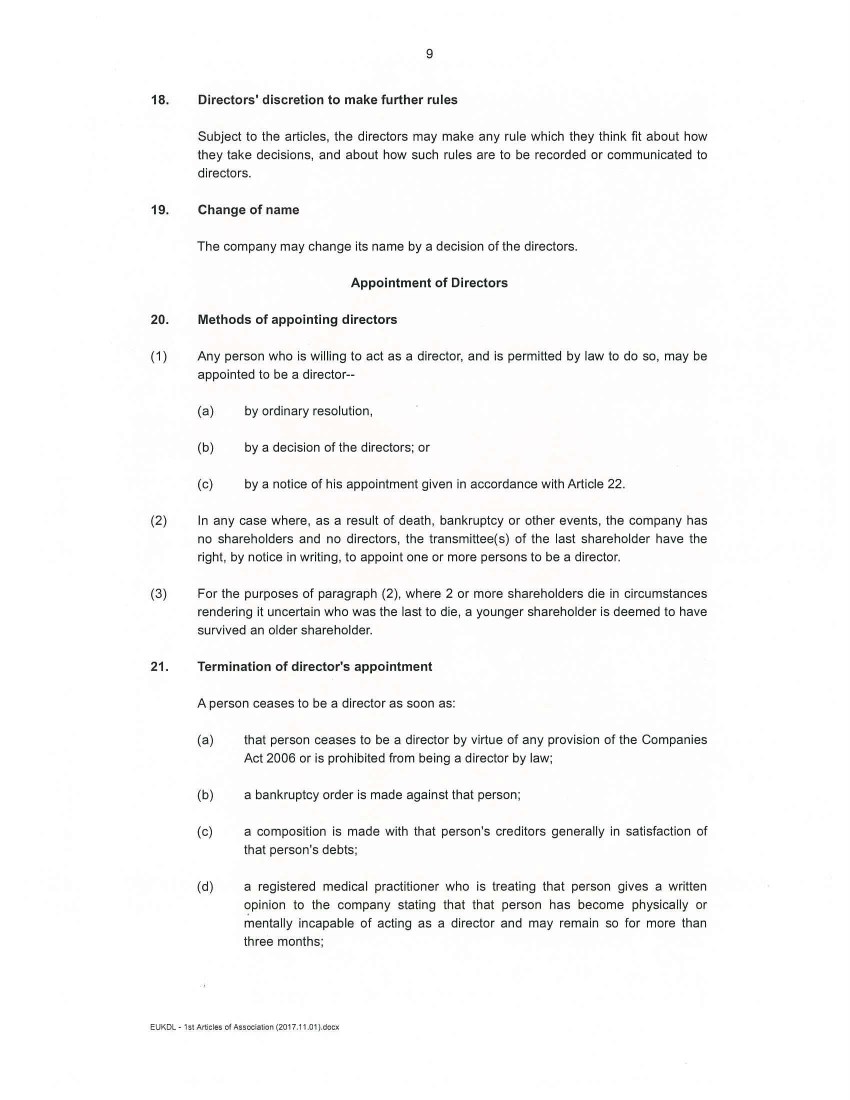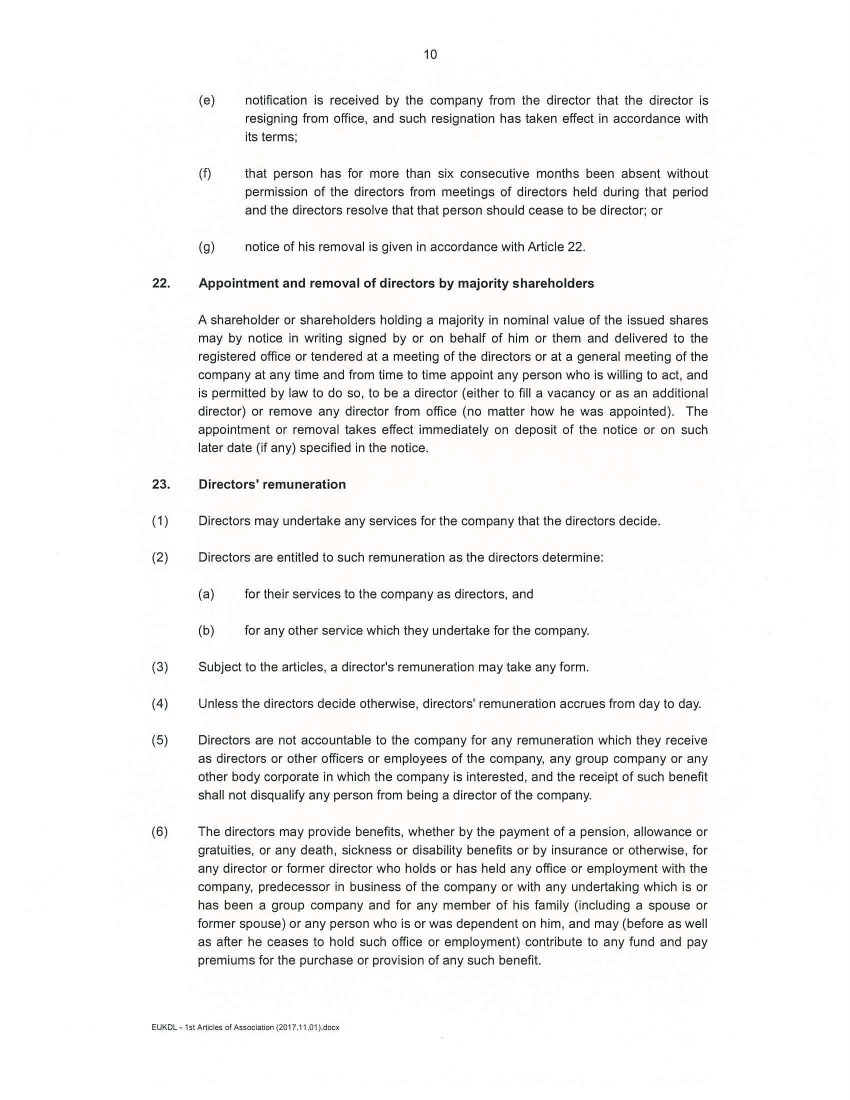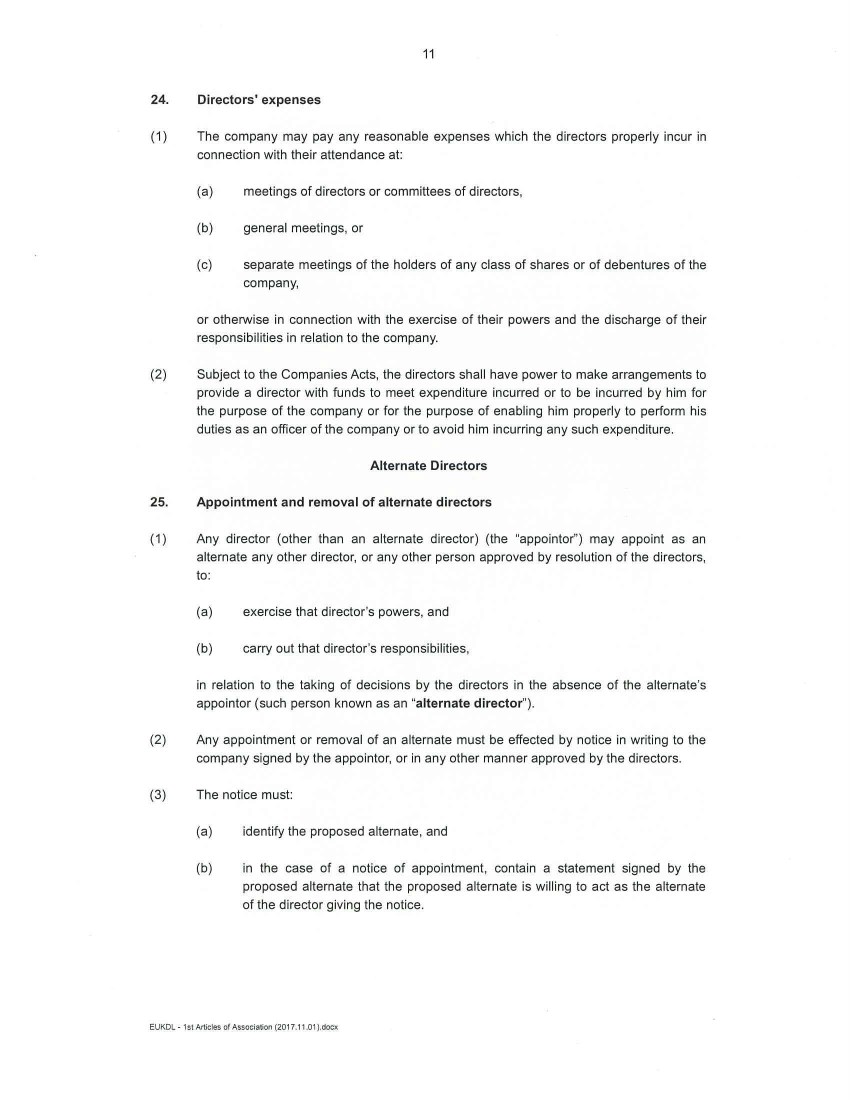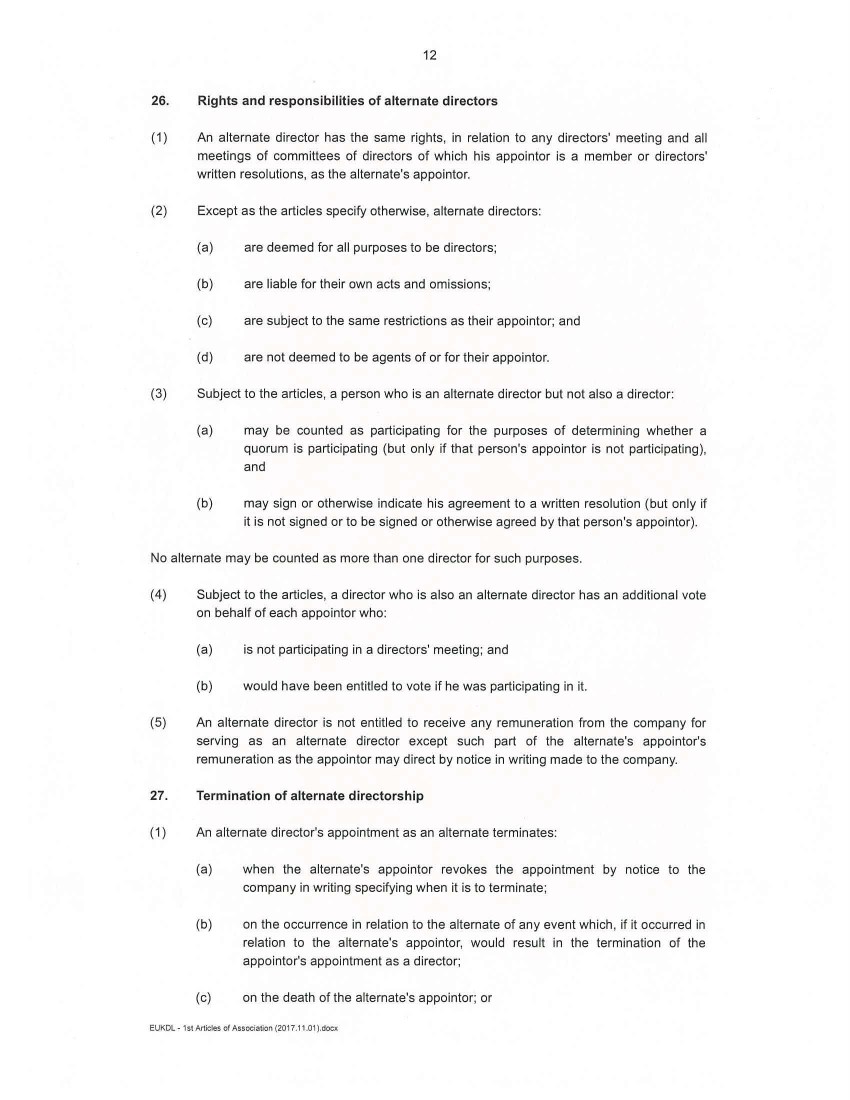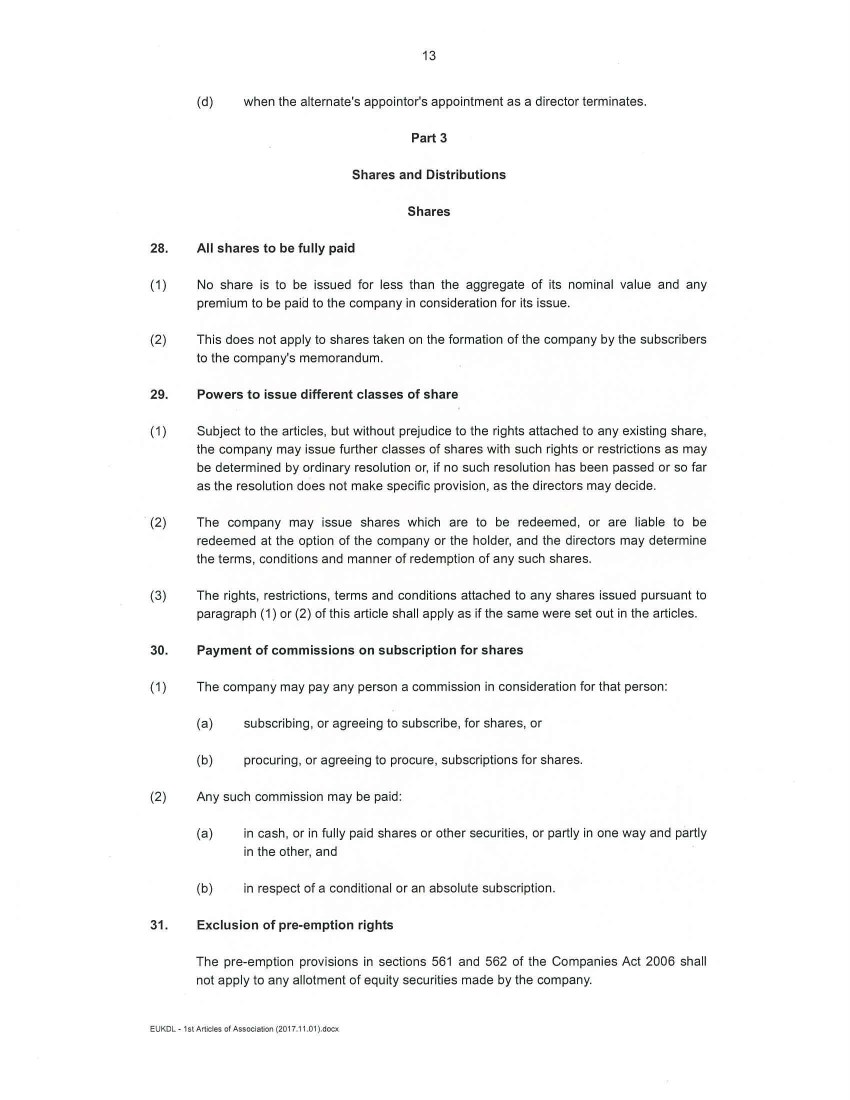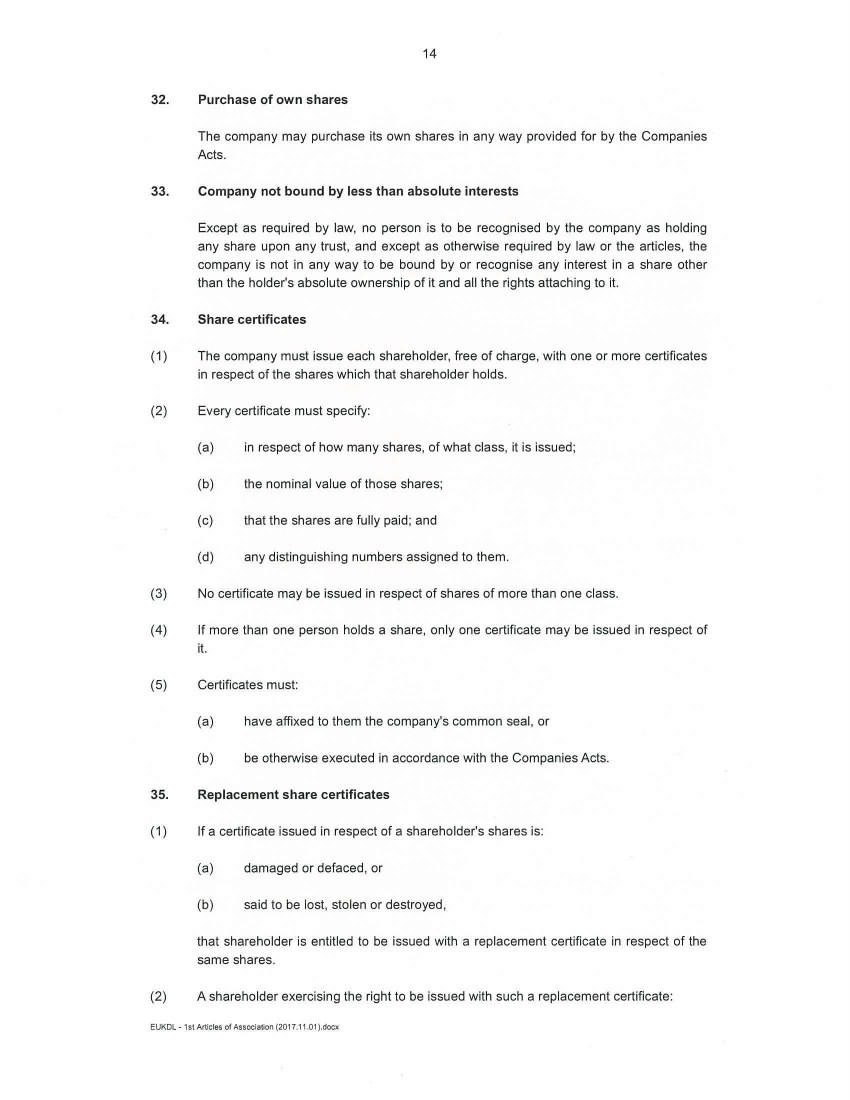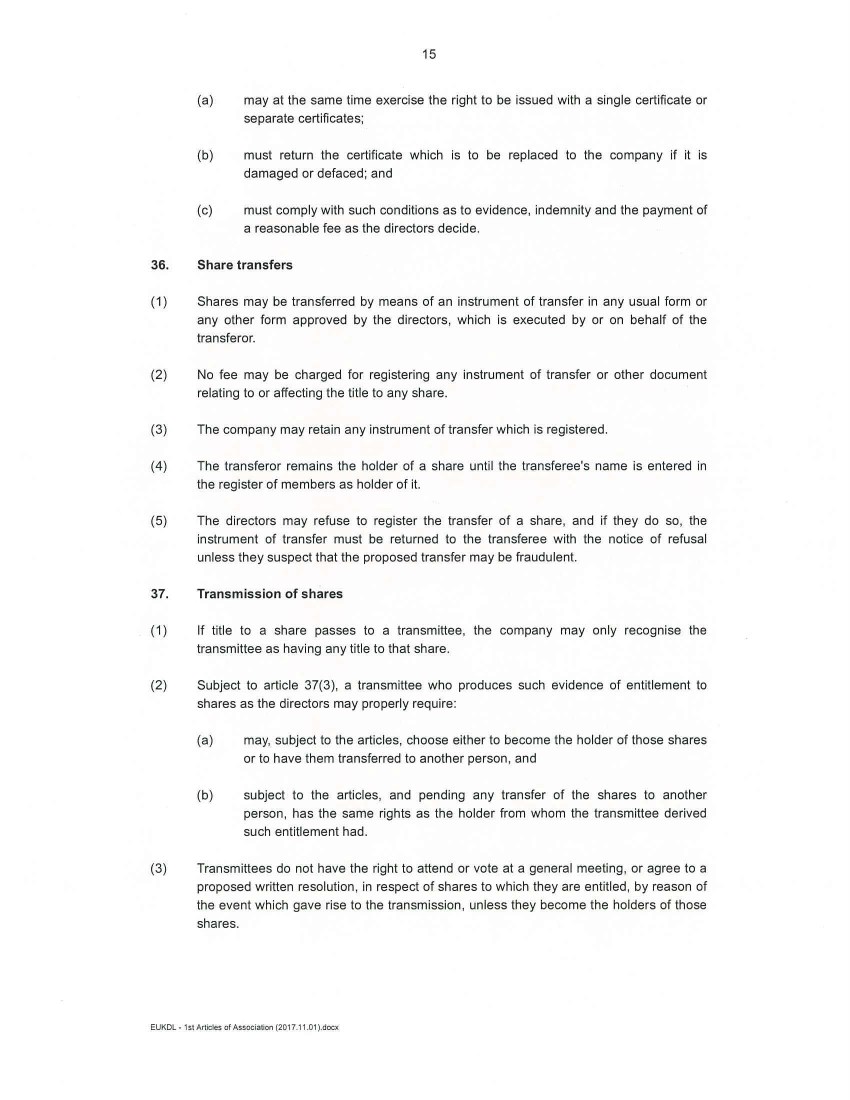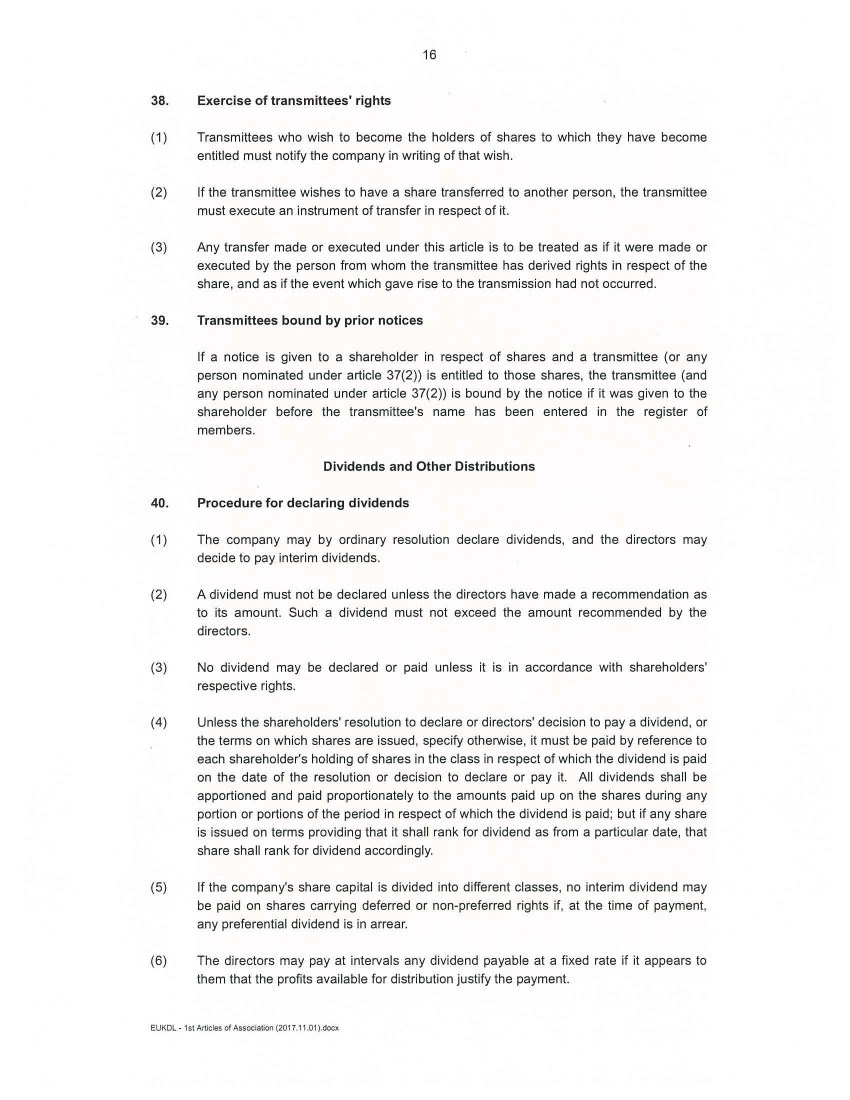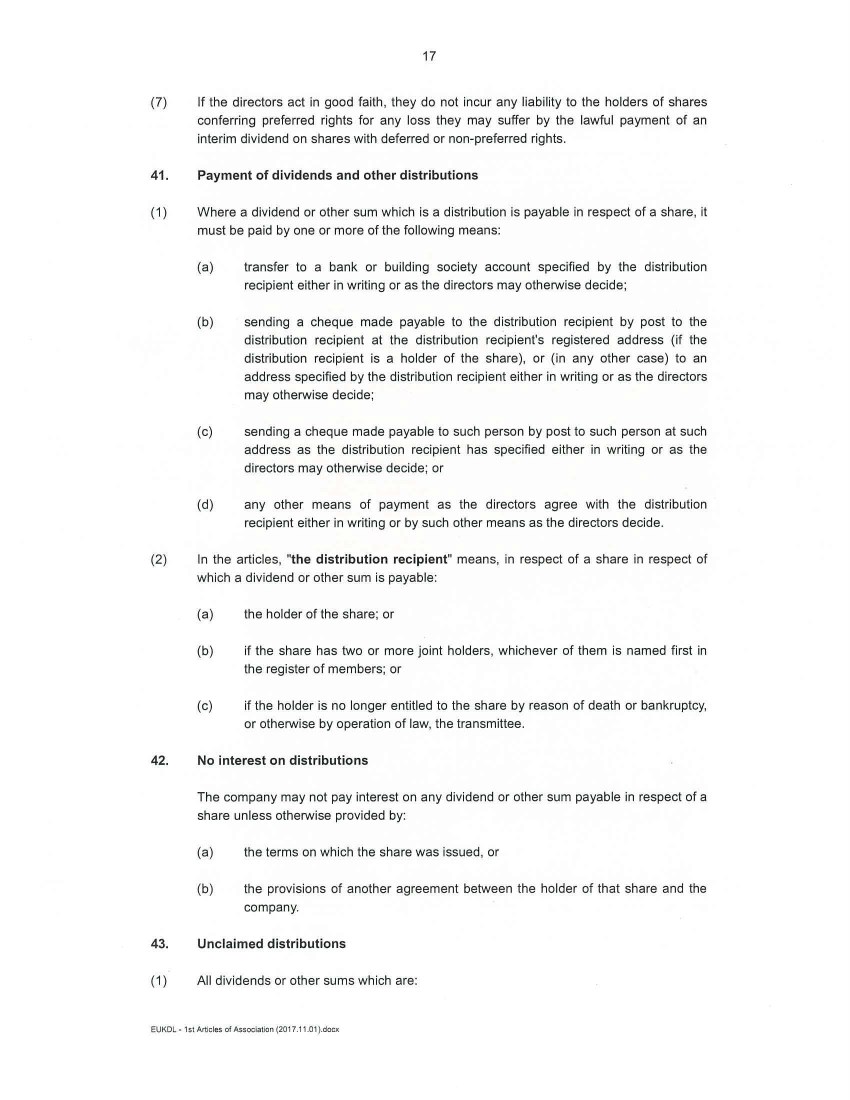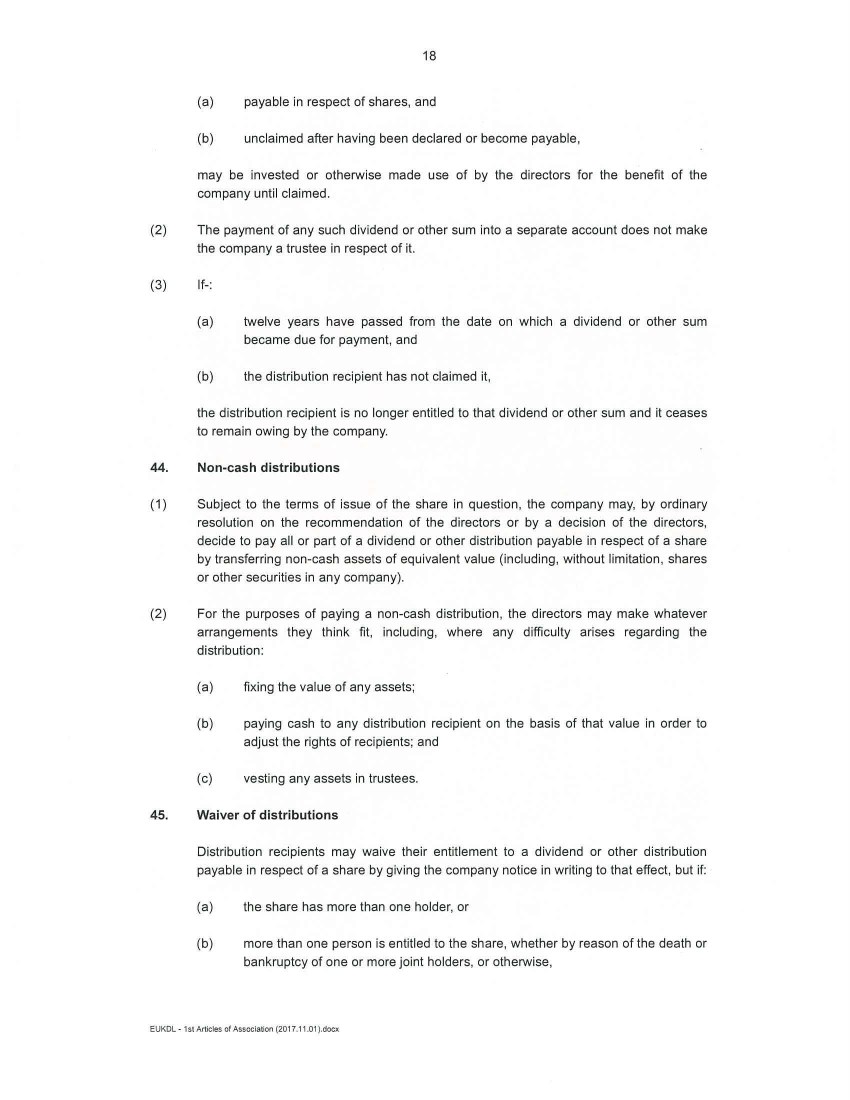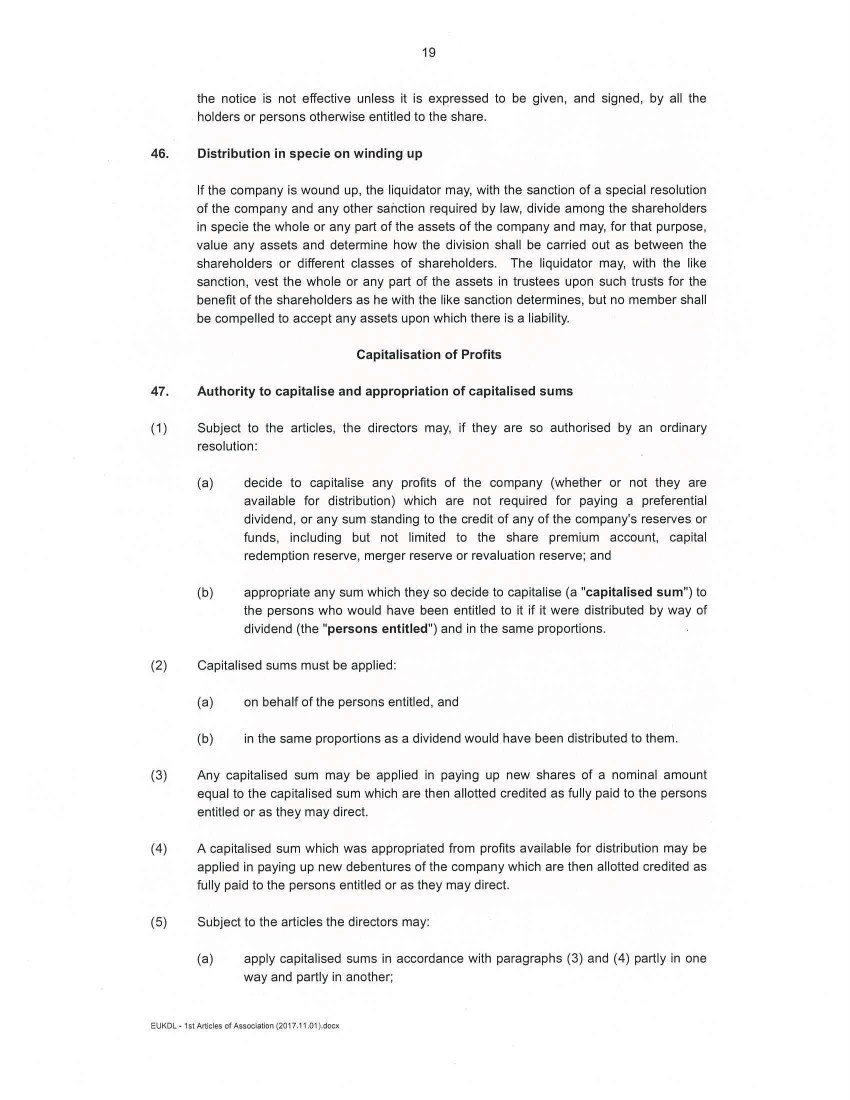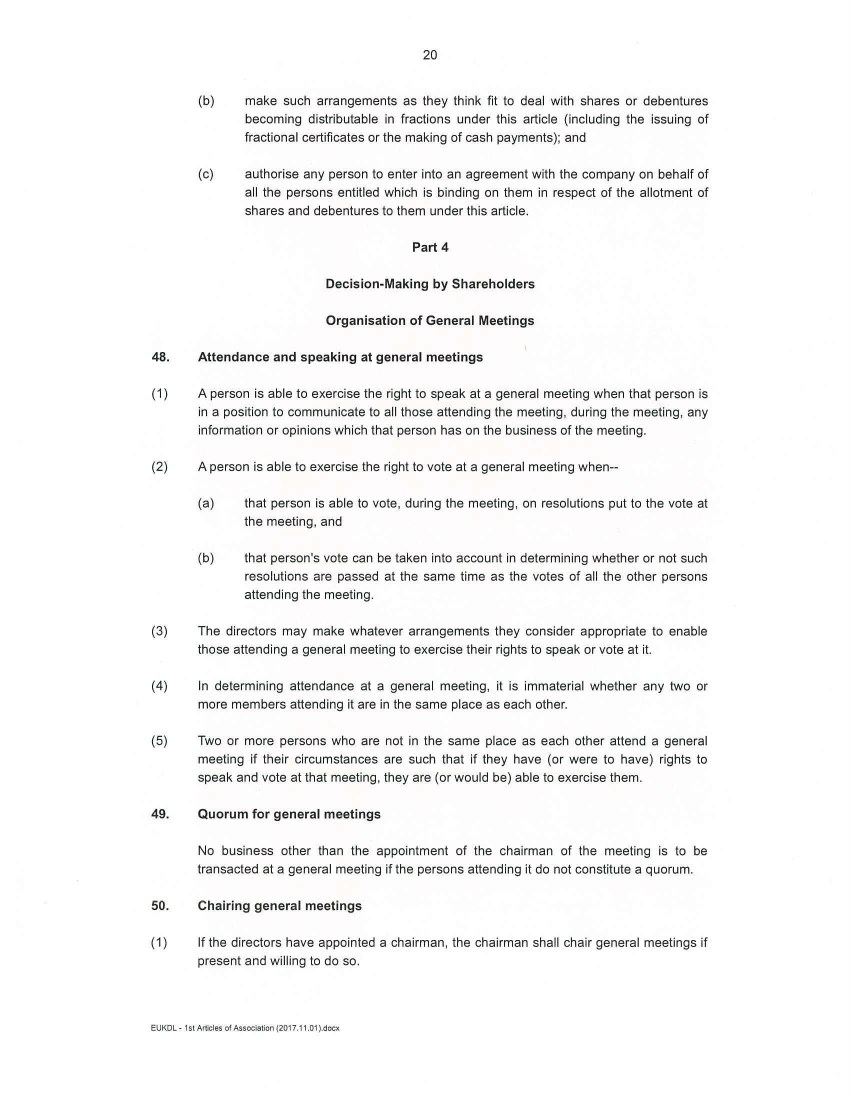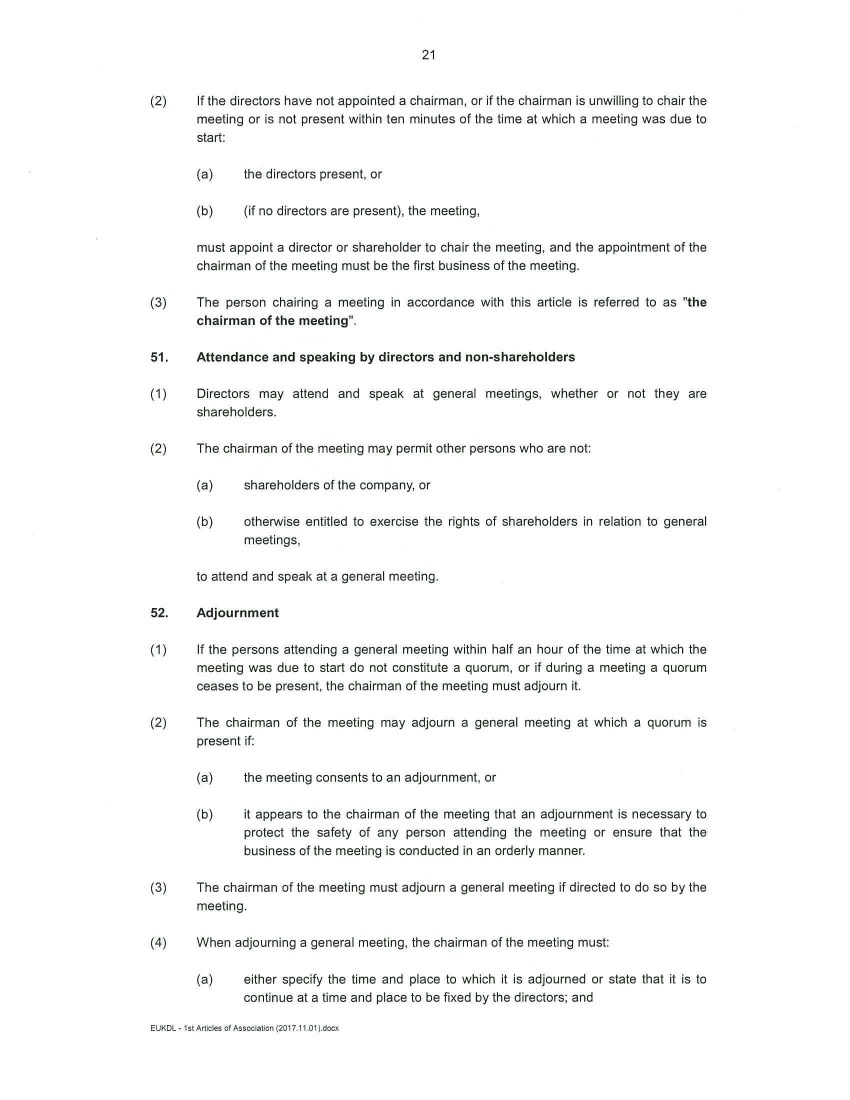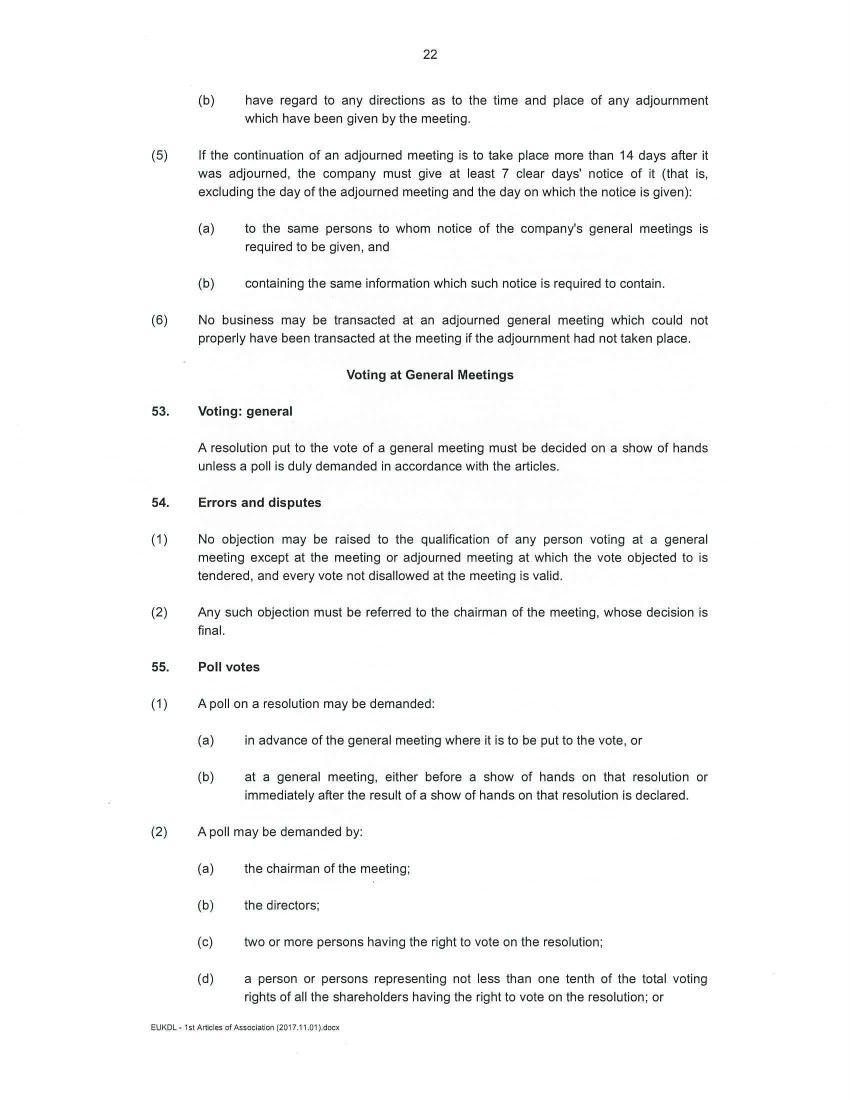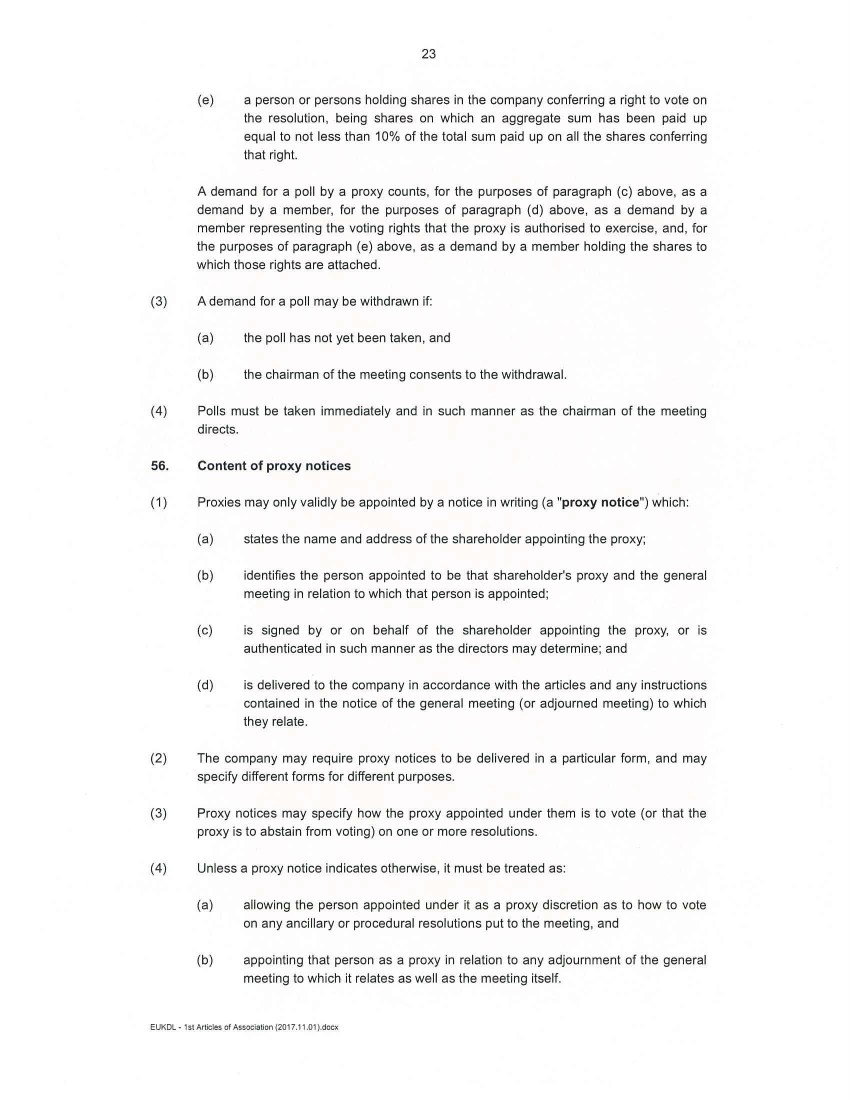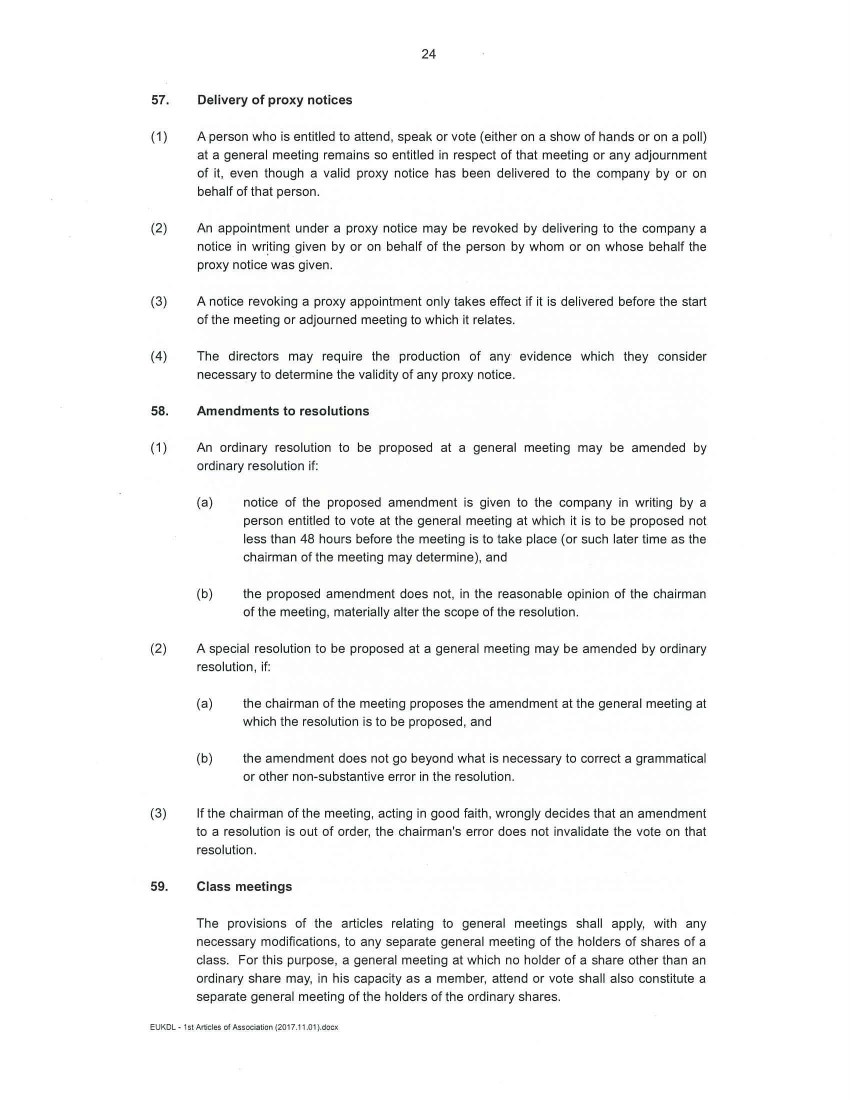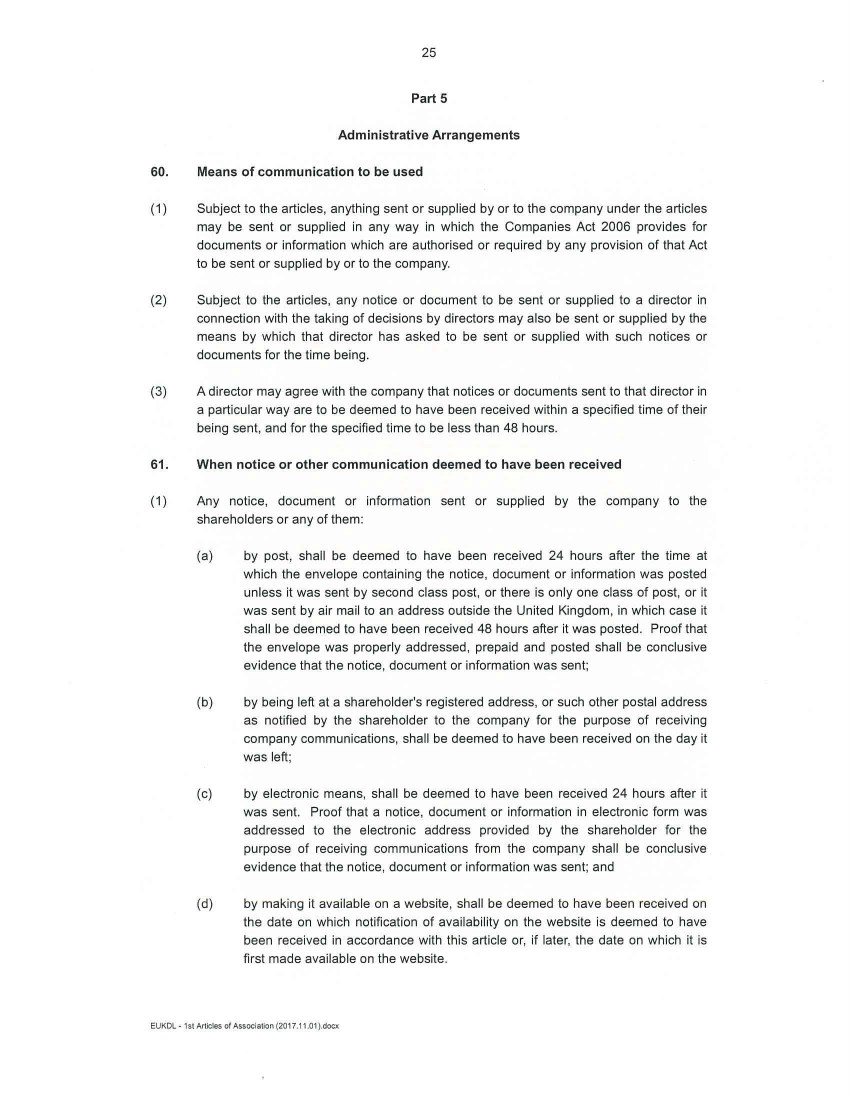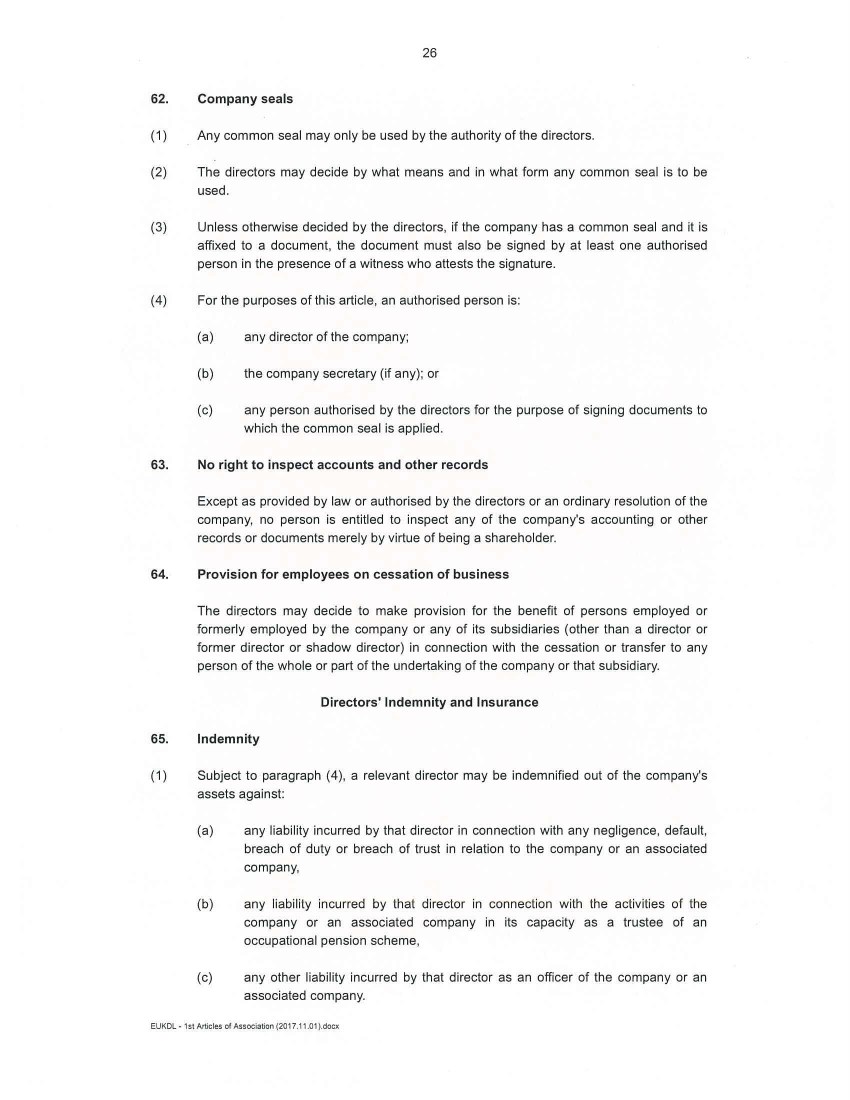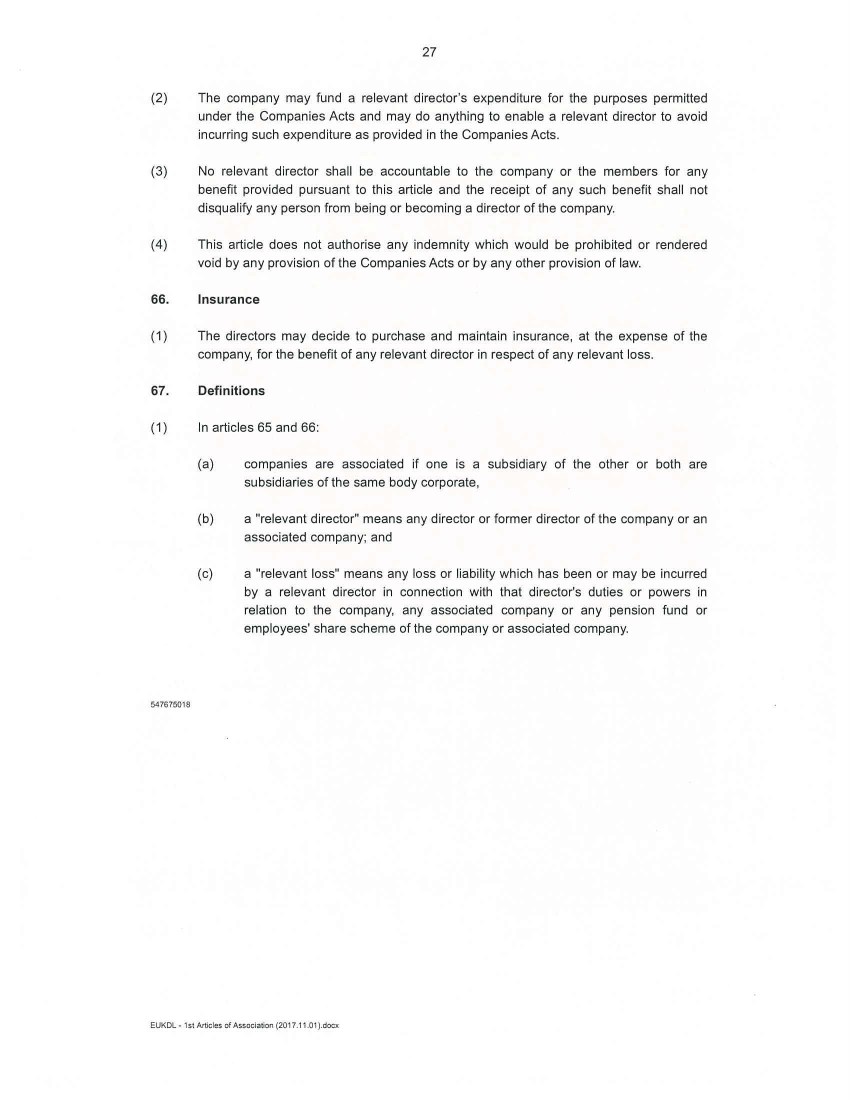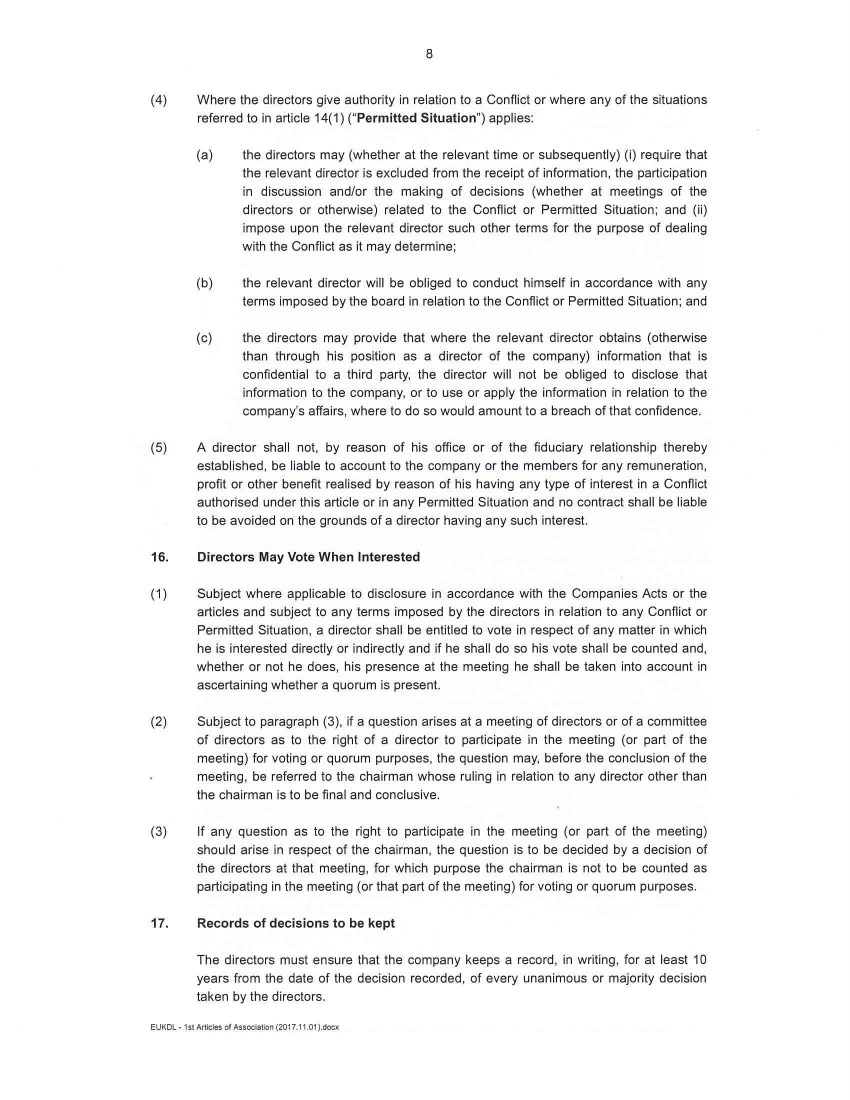
| 8 (4) Where the directors give authority in relation to a Conflict or where any of the situations referred to in article 14(1) ("Permitted Situation") applies: (a) the directors may (whether at the relevant time or subsequently) (i) require that the relevant director is excluded from the receipt of information, the participation in discussion and/or the making of decisions (whether at meetings of the directors or otherwise) related to the Conflict or Permitted Situation; and (ii) impose upon the relevant director such other terms for the purpose of dealing with the Conflict as it may determine; (b) the relevant director will be obliged to conduct himself in accordance with any terms imposed by the board in relation to the Conflict or Permitted Situation; and (c) the directors may provide that where the relevant director obtains (otherwise than through his position as a director of the company) information that is confidential to a third party, the director will not be obliged to disclose that information to the company, or to use or apply the information in relation to the company's affairs, where to do so would amount to a breach of that confidence. (5) A director shall not, by reason of his office or of the fiduciary relationship thereby established, be liable to account to the company or the members for any remuneration, profit or other benefit realised by reason of his having any type of interest in a Conflict authorised under this article or in any Permitted Situation and no contract shall be liable to be avoided on the grounds of a director having any such interest. 16. Directors May Vote When Interested (1) Subject where applicable to disclosure in accordance with the Companies Acts or the articles and subject to any terms imposed by the directors in relation to any Conflict or Permitted Situation, a director shall be entitled to vote in respect of any matter in which he is interested directly or indirectly and if he shall do so his vote shall be counted and, whether or not he does, his presence at the meeting he shall be taken into account in ascertaining whether a quorum is present. (2) Subject to paragraph (3), if a question arises at a meeting of directors or of a committee of directors as to the right of a director to participate in the meeting (or part of the meeting) for voting or quorum purposes, the question may, before the conclusion of the meeting, be referred to the chairman whose ruling in relation to any director other than the chairman is to be final and conclusive. (3) If any question as to the right to participate in the meeting (or part of the meeting) should arise in respect of the chairman, the question is to be decided by a decision of the directors at that meeting, for which purpose the chairman is not to be counted as participating in the meeting (or that part of the meeting) for voting or quorum purposes. 17. Records of decisions to be kept The directors must ensure that the company keeps a record, in writing, for at least 10 years from the date of the decision recorded, of every unanimous or majority decision taken by the directors. EUKDL • 1st Articles of Association (2017.11.01 ).docx |
